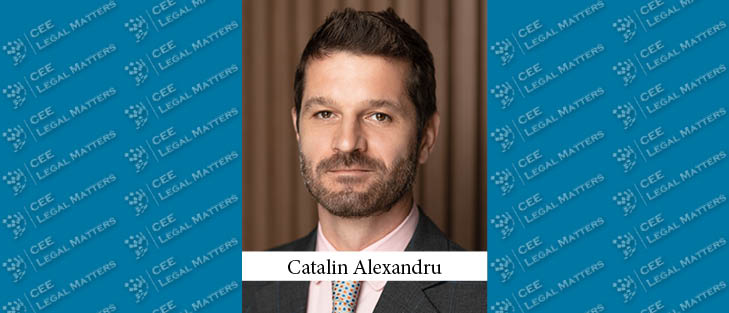Filip & Company Partner Catalin Alexandru dives into Romania's legal and business landscape, examining the impact of election-year dynamics on regulatory activity, the Constitutional Court's landmark decision on the windfall tax, the surge in public-private partnerships tied to infrastructure projects, and the general market trends.
"As is often the case in election years, we’re seeing a dual trend: On the one hand, there’s a tendency to postpone major decisions until after the elections, which slows government processes. On the other hand, authorities have ramped up their assertive activities," Alexandru begins. For example, Alexandru reports that the tax authority has intensified its collection efforts, while the consumer protection authority has been particularly active in scrutinizing the retail sector. "This balancing act colors the regulatory landscape during election years."
Another recent development Alexandru reports on is that "the Constitional Court struck down the windfall tax imposed on energy companies in 2021, declaring it unconstitutional. The court has yet to publish its reasons. It’s said that the tax unfairly targeted a narrow industry subset, penalizing profits driven by external market conditions. The Government reasoned that windfall taxes impose an additional charge on industries benefiting from a particularly favorable set of external objective market circumstances. The Constitutional Court may have considered that, by narrowly targeting a specific subset of the market – energy companies in this case – and using a high rate, the levy was an unfair and disproportionate burden." This decision "opens the door for energy companies to challenge the levies and seek refunds for billions of euros paid under the tax," Alexandru explains. "While this is a win for taxpayers, it creates a significant budgetary challenge for the government. Any solution to address the issue will likely provoke imbalances elsewhere."
Shifting gears to focus on the construction and real estate sector, Alexandru reports that it is "buzzing with activity, largely driven by infrastructure projects like the Transylvania Highway. Recently, the most expensive contract for a highway section was awarded, but it was immediately challenged." According to him, this reflects a broader trend of increased public-private partnership work, which often leads to arbitration and litigation. "PPPs are seeing a significant uptick in Romania, driven by numerous large-scale infrastructure projects being tendered. This surge is fostering more disputes, especially around contract awards, delays, and implementation, positioning construction and real estate as particularly active areas for legal work."
In Bucharest, Alexandru reports on the real estate sector being entangled in political turmoil. "The Mayor is in a prolonged standoff with administrative subdivisions and real estate developers over urban planning and building permits. Matters escalated when the Mayor forcibly removed a fence in Unirii Square, triggering a chaotic confrontation involving conflicting administrative jurisdictions," Alexandru says. "The Mayor has now called for a referendum to decide whether permitting authority should be transferred to his office, but history shows such votes don’t always result in follow-up action."
Finally, Alexandru reports that the legal market is abuzz with "discussions about digitalization and AI, and their integration into legal workflows are becoming more prominent. At the same time, the general market is experiencing consolidation, albeit not in the legal profession, which is more fragmented. On one side, mergers and acquisitions are on the rise; on the other, insolvencies of smaller and medium-sized firms are increasing." Moreover, he reports that the market can sometimes become more concentrated even as a consequence of legislative intervention. "In June 2024, the High Court of Cassation and Justice ruled that arbitration institutions not established under specific legal provisions cannot operate. This decision shut down several institutions, including the Bucharest International Arbitration Court set up by AmCham in 2016, effectively leading to the market concentrating."



